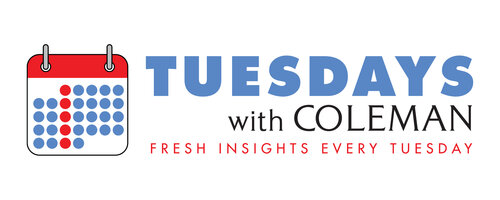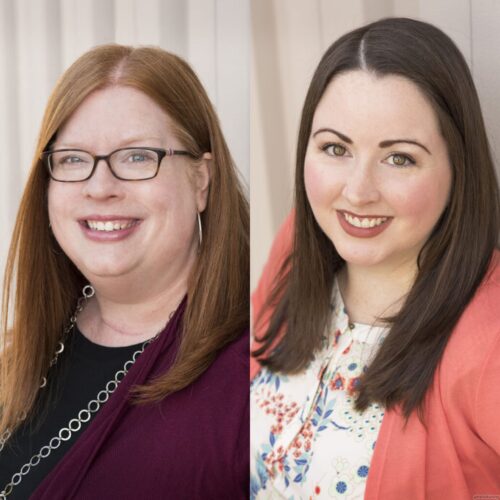
In life, you run across different kinds of rock stars.
There are the obvious ones – extroverts, in front of the stage, commanding attention.
But there’s another kind of rock star. The one behind the scenes, the kind whose presence could be missed if you’re not looking closely enough.
Jennifer Donnelly and Mandy Couch are those kinds of rock stars for Coleman Insights. Their presence may not always be obvious, but their influence permeates throughout nearly every project our firm completes.
Jen and Mandy both carry the title “Senior Music Specialist.” You’ll discover in the notes from our recent lively and spirited roundtable discussion just how these two peas in a pod are massively integral to Coleman Insights’ success.

Coleman Insights’ Senior Music Specialists Jennifer Donnelly and Mandy Couch
It starts with their deep love of music from a young age. Jen says, “I would sit there with my tape recorder and record music off the radio. I would be so mad when my mom would come in and would mess up the recording because then I would wait for it to come on again.” Mandy talks about being raised on The Beatles, but remembers when Grunge broke as she was starting high school. “I was between Goth clothes and Grunge clothes. There was a station called Surf 107 in Wilmington, North Carolina, and that’s all I listened to.”
Jennifer’s dad co-founded The Make-A-Wish Foundation of Eastern North Carolina, which Jennifer was involved with after college graduation. Not long after, her unique music knowledge landed her a position at Coleman Insights (then known as Coleman Research) in 1994.
When Mandy graduated from college armed with an English degree, she was working at a record store when a customer referred her to Coleman Insights. After initially taking a front desk position at Coleman, Jennifer recognized Mandy’s passion for music, and she was promoted.
They have worked together as Coleman Insights’ “music team” for 23 years.
When you ask Jen and Mandy what their favorite part of the job is, you get a quick answer.
“Coding music.”
Every single song in the Coleman Insights music library has a sound code. How a song is coded has huge implications for studies because of the many unique features of a Coleman study, as Jen explains.
“When we’re coding songs, we aren’t just thinking about it for one thing. We’re thinking, how’s it going to cluster with other coded songs when we do their music test? We’re thinking about when we run a monitor analysis for a client (including showing the percentages of each sound code airing on the station). That must be correct. So we have to point out when one song doesn’t feel right. It affects everything else in our research.”
Sometimes the process includes spirited discussions about coding with each other, the Coleman Insights consultant team, and radio station programmers and consultants.
Once something is coded one way doesn’t mean it will always be coded that way, and that’s one of the advantages of having Jen and Mandy constantly evaluating the library. Jennifer uses Creed as an example of a band whose songs shifted in coding years ago. “When Creed first came on the scene, they were perceived as hard. Then, some songs crossed over to Pop. So, for example, when “With Arms Wide Open” crossed over, that made their other songs not seem as hard. We had to do some shifting of how we coded everything of theirs.”
Jen and Mandy also need to consider how different formats see the same song differently. As Mandy explains, “A Hot AC station may see a song as AC, while a Mainstream AC may see it as Pop. You have to think about how it will fit on that specific station.”
These are just a few of the intricacies Jen and Mandy think about and deal with on a daily basis. Their work is behind the scenes and not always obvious, but it is highly worthy of our appreciation and respect.
Mandy makes a point about the client impact. “The way we code songs can make or break a station’s music presentation. Those codes go into music software, rules are put into place, and that’s the station’s sound to match the strategy. We’ve got to get it right.”
